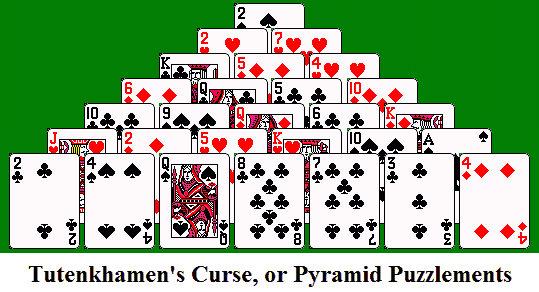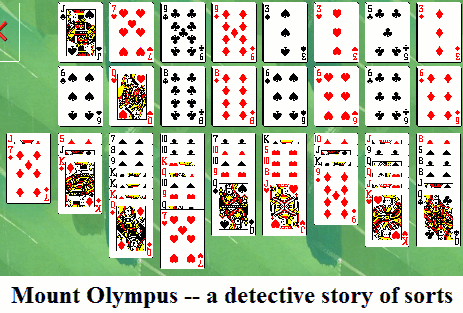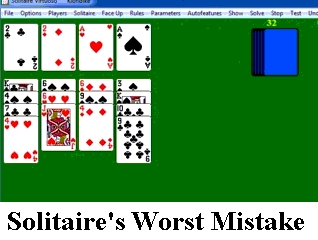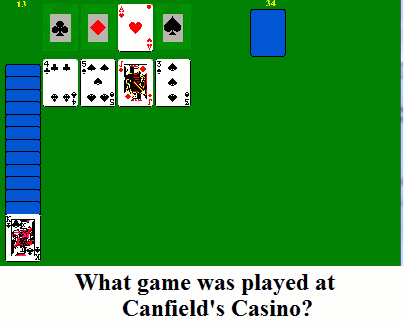



Detective Work
Having played hundreds
of variations of solitaire from dozens of books and computer
implementations, I am surprised how often the rules for a particular
game change from source to source, sometimes ruining an excellent
game. I suspect that there are a couple of reasons why this
happens most often: first, authors and programmers copy games from some
source without ever playing them, sometimes simply making mistakes in
copying the rules (this even happens occasionally in books and programs
which are first-rate, but happens far more often in poor ones).
The second reason (more common in computer programs than in books) is
that an author or programmer copies the rules correctly, tries the game
out, can't figure out how to win, and changes the rules to make it
easier to win (this has happened with Fortress, as we note in our article on that underappreciated game).
Our first story, about Tut's Tomb, is a simple case of programmers
getting a mechanism wrong, so badly that a game becomes practically
impossible (this is now part of a longer article on Pyramid). The second story is about a game, Mount
Olympus, which went from being too easy to too hard, and back
again. The third story is about a terrible game invented by
mistake. The fourth story is about a still-unsolved mystery of
two well-known games whose rules became intertwined and eventually
whose names became entangled.